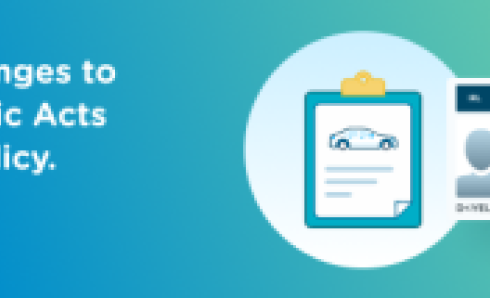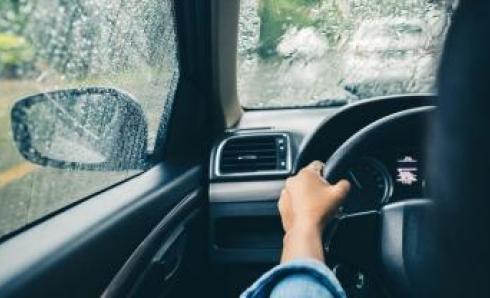Getting into a car accident is never fun, but neither is finding out your car insurance is shooting up because of it. Making a claim on your car insurance is often necessary if the damage is serious and plenty of work needs doing, but it will almost certainly lead to higher premiums and a loss of your no-claims bonus.
If you add 123.ie's Full No Claims Discount Protection to your policy, you can make one claim in a three year period, safe in the knowledge that your discount is fully protected.
Submitting an immediate claim might feel like a no-brainer, but there are a few points to consider carefully before jumping in.
What Are Car Insurance Claims?
A car insurance claim means that you are activating an element of your policy, and it could be for various reasons, including; theft, fire, or damage, but the point is to be able to claim back losses incurred because of a certain event.
Typical types of damages or incidents that result in car insurance claims are major car accidents (which might result in the entire car being written off), minor accidents (such as bumps and scrapes), vandalism (such as key scratch marks), and theft (either the entire vehicle or items inside).
While things have been fluctuating in recent years, in 2021, the average insurance premium in Ireland was €607, while for the period between 2009 and 2021, claims costs were, on average, 67% of premiums.
When to Make a Claim
Making a claim is usually advisable when severe damage or injuries occur. Car repairs don’t come cheap, and if you need to fork out thousands of euros to get the car back on the road, a claim certainly makes sense.
However, for minor damage, the situation is a little different. You can claim by all means, but you need to weigh up the implications of doing so vs taking the hit and paying for the repairs yourself - or just leaving it.
The Impact of Claims on Premiums
It would be great to make a claim on everything and get that money back, but the knock-on effect is that if the incident was deemed your fault, your monthly premiums will almost certainly go up. This is, unfortunately, a pretty standard procedure across the board for insurance companies.
Making a claim also means losing your claims-free discount (does not apply to no claims discount protection), a bonus built up over time as long as you don’t make a claim. Think about it as a reward for safe driving. The longer it goes on, the higher the discount is on your monthly premium, but the moment you make a claim, that bonus reverts to zero, Unless you have 123.ie step back no claims bonus protection. This means that if you make a claim, you won't lose your entire No Claims Discount and we will only step you back by 3 years and you have to start all over again. In short, you could end up paying a lot more per month.
The Role of Fault in Claims
When you are involved in an accident, an ‘at fault’ status will usually be applied to you or another driver - depending on who was responsible for the incident. There are also often times when this will be shared between the two if both parties are at fault to some extent.
If you are involved in an accident and found not to be at fault, the responsible party's insurance will cover your costs - meaning your premiums and claims free-discount should stay the same. For this to happen however you either have to make a successful claim against the at-fault driver’s company or if you make a claim against your own policy your insurance company would have to make a successful “recovery" against the at fault driver’s insurance company. In the latter scenario your premium and claims free discount may be impacted until the recovery has been made successfully and in full.
The Car Insurance Claim Process in Ireland
The process of making a car insurance claim in Ireland might vary depending on the insurance company or the specifics of the incident.
Reporting the Incident
It’s essential to report an incident to the insurance company as quickly as possible. You can usually either do this over the phone or online, but you’ll need to include all of the relevant information, such as,
- Name
- Insurance details
- Car registration
- Description of the accident
- Description of the damage
How to Evaluate the Need for a Car Insurance Claim
As we said at the start, you need to pick and choose when you make a claim because doing so has knock-on effects.
Assessing the Damage
You should report all incidents to your insurance company but before making a claim, you should carefully evaluate the extent of the damage and estimate repair costs. If damage is simply a scrape down the side, which could be repaired with a second-hand part, it might make sense not to claim and pay out of pocket.
Considering Future Implications
Think of the big picture. Consider total loss, including increased premiums and loss of no-claims bonus, versus repairable damage and cost. It's difficult to gauge how much premiums will rise after a claim, but Compare the Market sets it at between 20% and 50% in Ireland.
You should also take into account the loss of the no-claims bonus, which could equate to a sizable 50% reduction per month if kept intact for five years or more.
Understanding Car Insurance Policies in Ireland
Car insurance policies in Ireland cover different types of events that can affect your vehicle and usually come in three categories:
Comprehensive - A comprehensive policy means your insurance will cover you for more than the legal requirement whether it is your fault or not. It will also cover theft and fire.
Third-party - Third-party insurance is the minimum level of insurance legally allowed and means that your provider will only cover damage to other people’s cars or the cost of injuries to others. This is the cheapest insurance, but it does nothing to protect your vehicle.
Third-party fire and theft - Like above, but with the additional security of fire or theft coverage for your own vehicle.
Car Insurance: An Essential Aspect of Road Safety
Car insurance is not only a legal requirement, but it also contributes to overall road safety by ensuring a basic safety net for any accidents on the road. It helps to protect those who might not have the financial capacity to repair their car after an accident when it wasn’t their fault.
How Insurance Promotes Responsible Driving
Insurance companies like responsible drivers - because it means they have to pay out less - which is why premium reductions and no-claims bonuses are used. There are ways of encouraging drivers to act safely on the roads by offering incentives (money) in return.
Riskier driving habits, therefore, almost always lead to higher premiums because insurance companies see them as higher risk. It makes sense, really.
Conclusion
Car insurance is a legal responsibility but also your safety net. However, as we’ve seen, it might not always be the right time to make a claim. If you get into a minor accident and nobody is injured, you need to think carefully about claiming for something relatively minor that could cost you more in the long run.
123.ie, offers car insurance, with wide ranging coverage options to suit every need and excellent customer service. We can never predict what’s going to happen on the roads, but you can be sure you’ve got one of the best insurance provider behind you.





